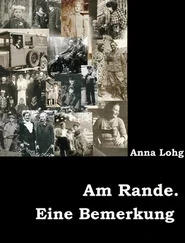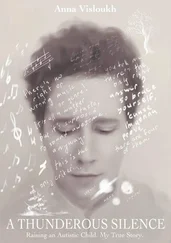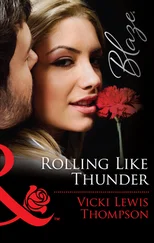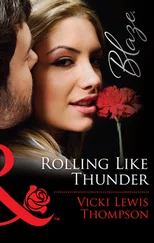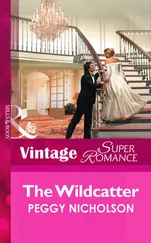We want that fish. We all want it. I imagine the meal Maria will make, the scent of it cooking in the galley, the steam that will rise from her iron pot as supper reaches perfection, the succulent morsels of the flesh in a salty broth tipped from spoon to mouth. Fresh food has been far from a daily affair on this voyage. My stomach, missing its morning tea and kasha, loudly confesses my hunger.
The negotiation begins. Timofei Osipovich says something, then sends his loyal Ovchinnikov to the hold below deck. Ovchinnikov returns with several strings of deep-blue korolki wrapped around his shoulders, and a string of glass pearls cupped in one hand. I’ve long admired these beautiful beads, though my tastes aren’t as fine as the ladies in Petersburg who would’ve rejected them, not because they’re unattractive, but because they’re not the sapphires, rubies, and emeralds that make other women envious.
Finally, a deal is reached. Timofei Osipovich nods. Our impatient apprentice Kotelnikov shifts his weight and lets his musket sag a little. Zhuchka’s tail wags tentatively.
The beads, pearls, and fish are passed over the gunwales at the same time. The Aleuts accept the fish with a grunt—it must be even heavier than I thought. Maria leads them away, her head held high as though she herself finalized the negotiation.
I expect the two koliuzhi to leave, but Timofei Osipovich is not finished with them yet. “Quartlack, quartlack,” he cries, his hands open. The koliuzhi are impassive.
Sobachnikov blurts out, “They’ve got one, down there,” and points to the canoes. Heads turn in unison. Sobachnikov’s face floods, and he seems startled by his outburst. Timofei Osipovich gives him a withering look. He never has patience for Sobachnikov, and he’s annoyed with the interference. Besides, he probably saw the beautiful sea otter cape long before Sobachnikov did.
A thick, fur cape rests on a man seated in the middle of the largest canoe. It’s nearly black, much darker than my hair; as the man wearing it shifts slightly, he exposes its silver highlights. Everyone believes sea otter is the finest fur in the world. Back in Novo-Arkhangelsk, my husband showed me how its two distinct layers of hair render it thicker than what’s found on any other animal. We call it “soft gold” in Russia, for the Chinese desire this fur over any other, and, fortunately for our empire, they’re willing to pay ridiculous sums for it. I think the Chinese must be uninformed. Our Russian sable is far more beautiful and soft.
It occurs to me that what’s happening—what has been happening ever since the canoes appeared—is about the black cape in the canoe. The halibut and the korolki have been a prelude to more important matters. We’re here for sea otter furs.
“Makuk,” says Timofei Osipovich, his eyes narrowing. “Makuk.” He waits, then says again that word, “Wacush.”
Timofei Osipovich sends Ovchinnikov back to the hold. Ovchinnikov takes a long time. The koliuzhi with the fur cape makes no effort to remove it. Throughout, the weapons on both sides remain aloft and no one speaks. Though the fish and korolki were successfully traded, any trust between us is only a half-cooked blin: batter poured onto the griddle and turned before it was set.
Ovchinnikov returns finally with our part of the trade: more korolki, more glass pearls, a fold of nankeen cotton, dark blue as the sea this day, and an iron bar, which must be poor quality or it wouldn’t be offered so easily. I know this; surely the koliuzhi do, too. However, I still think it a favourable deal, better than what was offered for the halibut. But the koliuzhi remain unconvinced.
Then the koliuzhi man with the scar on his chest cries, “  upakuut!
upakuut!  upakuut!”
upakuut!” [1] Coat! Coat!
Timofei Osipovich frowns deeply, and it’s easy to predict what he’ll look like as an aged man of forty years. In an instant, the frown transforms into a smile and a sharp laugh.
“They want your coat,” he says to Nikolai Isaakovich.
“My coat? Whatever for?” He looks down at his chest.
“It’s not the coat exactly. They want the cloth.”
“Well, I need it. They can’t have it,” my husband says, somewhat petulantly. It’s his black-green greatcoat, and it’s been chilly enough throughout the voyage that he wears it every day. It nearly reaches his ankles and is adorned on the front and the shoulders with brass buttons stamped with the imperial eagle. With a tall collar and flaring cuffs that more or less reach his elbows, it’s made of coarse broadcloth. “Tell them there’s nothing wrong with the nankeen cotton, and that it’s the best they’ll ever see in exchange for that ratty, old pelt.”
Calling the fur cape ratty is untrue and rude. What is Nikolai Isaakovich thinking? Does he want the fur or not?
Timofei Osipovich tells them something. When he finishes, there’s much discussion in the canoes. Timofei Osipovich leans over the bulwark next to Ovchinnikov and they observe very closely. They remain so focused that they don’t see when the koliuzhi men on deck make a move. They’re halfway over the gunwales before either notices.
Timofei Osipovich is startled. He cries out, “Quartlack! Quartlack! Makuk!” No one from the canoes replies. “Makuk!” he shouts again, shaking his fist toward the disappearing flotilla. “Makuk klush!”
As they paddle away, I release Zhuchka. Timofei Osipovich regains his composure. He says to Nikolai Isaakovich, “Well, the scythe has hit a stone. But they’ll be back tomorrow. I will get you that pelt, and many more.”
“They have more?”
Zhuchka puts her front paws on the bulwark. She barks and wags her tail at the disappearing koliuzhi.
“Of course they do. This is all a part of the trade. You wait until you see what they bring tomorrow. Your eyes will bleed.”
Maria does justice to the halibut. In the galley, she saws through the fat flesh and tosses chunks into a pot of water. I stand away, for I don’t want my apron to be stained. Blood and slime and shiny intestines and organs drip from the cutting surface. She ignores them, though Zhuchka does not. She devours whatever bits land within reach.
Maria chops each slice of carrot in half, frugal as she is. The fresh vegetables we carry—grown over the summer and sold by the bishop’s own gardener in Novo-Arkhangelsk—won’t last much longer. It’s a testament to Maria’s thriftiness and good planning that we have any left at all.
The smell of cooking fish wafts throughout the brig all afternoon. It’s a relief when the meal’s ready. Because there’s so much fish, everyone’s bowl brims with fat chunks of flesh.
Once the initial exclamations of delight are made, praise for Maria’s skill expressed, and thanks to God offered, there’s silence around the table, except for the sounds of eating and an occasional grunt of satisfaction. The men slurp the meal off their big, thick spoons. The bones are large and easy to find, and they extract them from their mouths impatiently while lifting another spoon of the oily broth to their lips.
Even I gobble the ukha as though I’m back home and my own mother has made it.
The sky clears in the evening. Content after the big meal, I wrap my warmest shawl around me, tie the ends loosely—I can’t find my pin—and take my telescope on deck. It’s breezy, and the air is so cool my face tingles. I look up. A few wisps of cloud remain. It’s far from perfect, but as my father often says, the best astronomers always find a way to work with the seasons. I raise my telescope.
Читать дальше
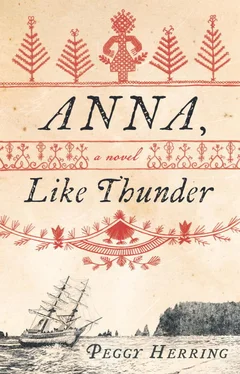
 upakuut!
upakuut! 

